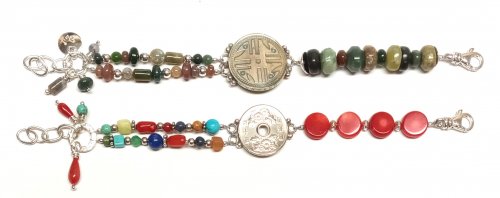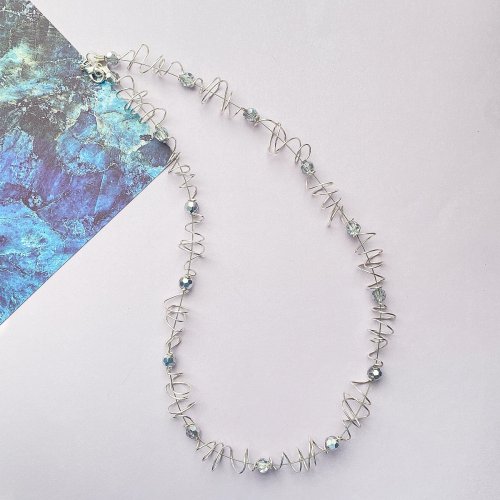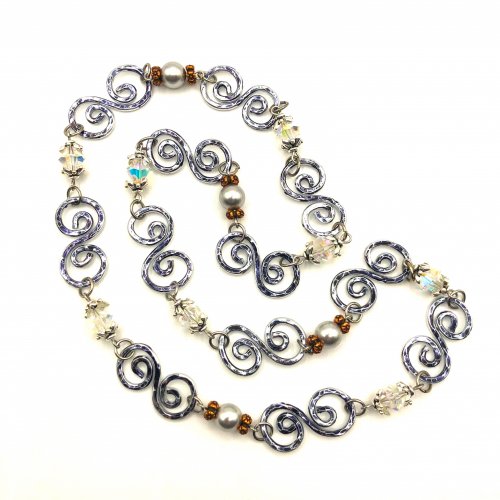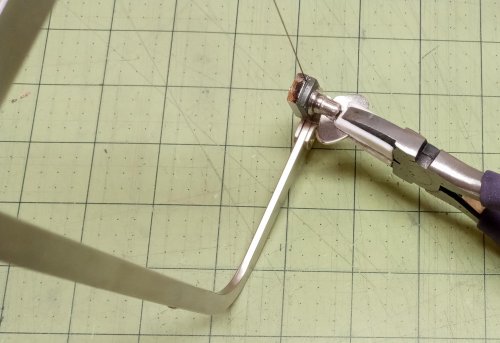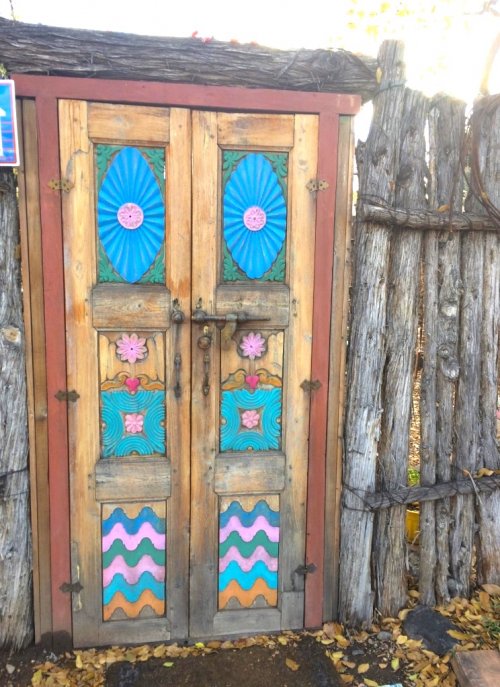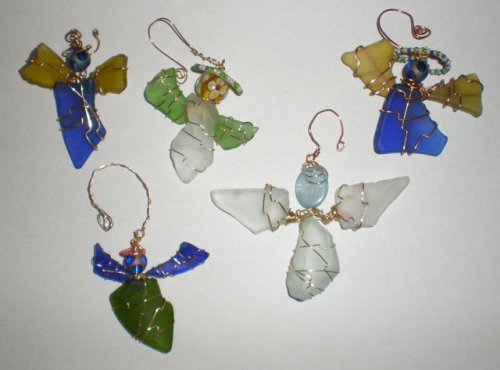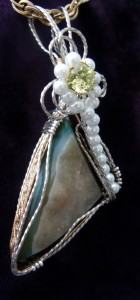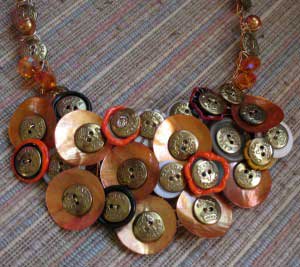Leaf Bail

Designed by Judy Larson © 2016
Skill Level: All - Soldering experience is necessary to make this bail.
Materials:
- 18 gauge round (shown) or half round dead soft wire-- (Using half round wire will give you more surface area contact for soldering.)
- 24 gauge sheet metal
Tools:
- Tools for your preferred method of cutting out sheet metal shapes
- Tools and solder for your preferred method of soldering
- Bench Block
- Texturing Hammer
- Butane torch and fire brick
- 6-Step Barrel Pliers
- Rubber or nylon head hammer
- 1mm dimple pliers
- Ultra fine point permanent marker
- Metal file
- Pickle and pickle pot
- Tumbler
- Optional: Liver of Sulfur
Before you get started:
The template for this Bail was previously published on our blog as part of Judy's Christmas Jewelry component Templates - CLICK HERE to read that post and download Judy's Templates.
Instructions:
- Make your pattern using the photo as a guide.

- Trace the pattern onto sheet metal. Cut the leaf shape out using your preferred method. This is a thinner metal so metal shears were used here. Since the piece will be textured, scratches, etc., caused by shears will not be an issue. Draw a line down the center of the metal piece using an ultra fine point permanent marker.


- Texture the metal piece-any hammer texture will be fine. The narrower side of a Mini TruStrike Sharp Designer Hammer was used in this tutorial. Notice that the piece expands in size when you texture it. When you are finished texturing the piece it will probably have curled up a bit. Carefully flatten it on the bench block using the rubber or nylon head hammer.

- If the sides are sharp after texturing, use a file to soften the edges.
- Flip the piece over and use an ultra fine point permanent marker to draw a line across the back side of the metal piece about 1/8" up from the pointed tip.

- The first decorative dimple should be formed right on the line. Place the indented cup side of the dimpling pliers on the FRONT side of the metal piece. The edge of the metal piece should be on the edge of the indented cup. When you close the jaws of the pliers, the hook portion should be just inside the edge of the metal piece right on the line on the BACK side of the piece.

- To make each succeeding dimple along each side of the bail, place the edge of the indented side of the dimpling pliers jaw against the previous dimple. As in Step 6, the edge of the metal piece should be on the edge of the indented cup. When you close the jaws of the pliers, the hook portion should be just inside the edge of the metal piece.


- Cut a piece of 18 gauge round wire about 1 inch longer than the metal piece. Make sure it is straight. Hint: Roll the wire between two bench blocks to straighten it.
.
- Place the wire on the line. The wire should hang over the square end of the leaf about 1/4 inch.. Solder the wire in place using your preferred method.
- Trim the wire flush with the square end of the leaf.
- Pickle the piece to remove fire scale.
- Using Step 4 on the 6-step pliers, curl the back square end of the leaf towards the front as shown. Note that the wire is on the OUTSIDE. You may need to use Step 5 if the leaf expanded a great deal when you textured it, or cut the square end of the bail shorter if you want the shorter bail you see here.



- To make the lower pendant loop, use Step 2 of the 6 step pliers, or whichever step on the pliers is necessary to obtain the size loop you need to fit your pendant. Once the loop is made, trim off the excess wire. Move the pendant loop into place at the back of the bail.



- Tumble the bail with steel shot to harden and polish it.
- Optional: Patina the bail, if desired, using a liver of sulfur solution. Polish with very fine steel wool to bring out the hammered details.
- Optional: Tumble for 30 minutes or so with steel shot if you want the bail to have a brighter shine after the you steel wool the patina. Tumbling will not affect the patina.

- The green bail below was enlarged and dabbed with alcohol paints to turn it into a pendant by Kathi Nelson












-
Congratulations! You've made your first Leaf Bail!
 Free Wire Jewelry Patterns
Free Wire Jewelry Patterns
Did you find this pattern through a link from a friend? This Free Wire Jewelry Pattern is just one of dozens of free wire jewelry patterns we send via email. Get patterns like this one straight to your inbox - click here!








